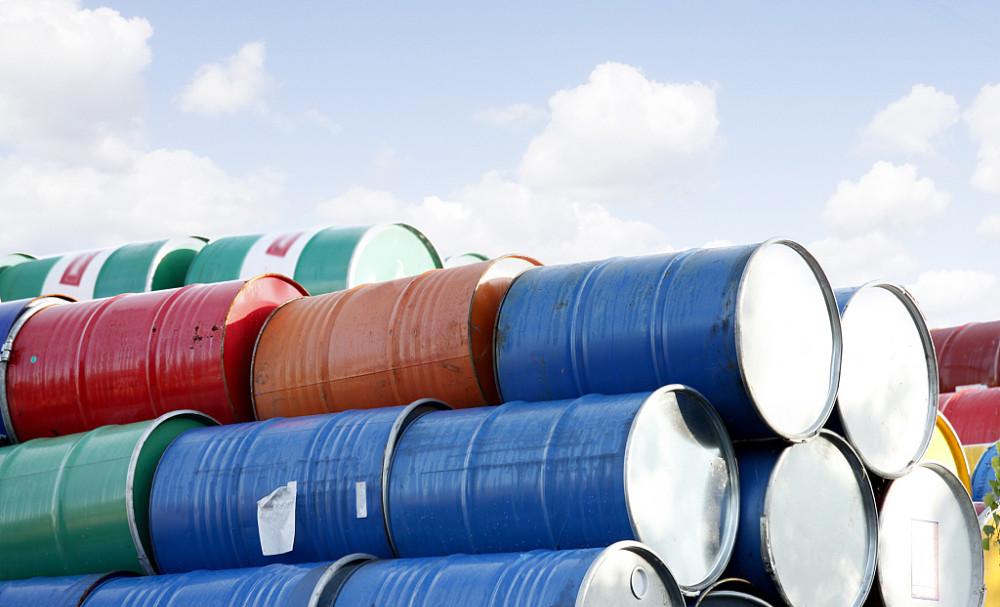The world has changed: China's crude oil imports have fallen for the first time in 20 years, and industrial upgrading has achieved small success
1
There is a message that is very important, but on the Internet, it is actually rarely mentioned.
The news is: In 2021, China's crude oil imports fell by 5.4% year-on-year, the first decline since 2001.
Crude oil imports from the world's factories have fallen, and many people may be surprised and ask why. In fact, the reason is very simple, everyone on the earth knows: yes, it is the "carbon peak" and "carbon neutrality" strategy (hereinafter referred to as the decarbonization strategy).
The mainland promises that domestic carbon emissions will peak by 2030; then they will decline year by year until 2060, reducing the net domestic carbon emissions to zero."
In order to decarbonize the strategy, we must eliminate some backward industries and backward enterprises that are "high energy consumption and high pollution", but at the same time "inefficient and low profit"; these backward industries and enterprises are extremely consuming oil and gas resources; backward enterprises have decreased, demand has declined, and crude oil imports have naturally "retreated".

2
If we make it clear again, the more essential reason for eliminating backward industries and enterprises is that we do not want to do the business of "losing money and not making money".
As we know, China is a big exporter, and a considerable number of backward industries and enterprises serve overseas markets. We import energy, produce real money and silver for Europe and the United States, and leave the pollution to ourselves in exchange for a bunch of water-filled dollars; in turn, Europe and the United States criticize us for not protecting Mother Earth and robbing them of their jobs.
Can this kind of business be done for a long time?
Decades ago, the mainland's economy was in its infancy, desperate for dollar reserves that could pinch its noses, but now, the average GDP of Chinese has exceeded $12,500, reaching the level of high-income countries, no longer in a state of poverty and start-up.
If we have ambitions and want to go further and break through $30,000 per capita to reach the level of developed countries, then we must upgrade our industries, abandon backward industries with "high energy consumption and high pollution" but "low efficiency and low profits", and do advanced industries with high profits.
3
Some people will definitely raise the bar at this time: you said lightly, where is the industrial upgrade " you say upgrade, you can upgrade"? If we don't export backward products with high energy consumption and low profits, what else can we export?
To answer this question, we must first understand that industrial upgrading is a long-term strategy and a long-term process.
The mainland will not be completely "carbon neutral" until 2060; from 2022 to 2060, there are still more than 30 years of buffer time for you to transform, not to force you to upgrade immediately and eat a fat bite.
Industrial upgrading just gives you a development direction and deadline. I want to be sustainable, I want to eat good fruit, as I said.
Of course, if you don't want to make progress, you want to rely on "high pollution and low labor wages" and continue to make money lying down, then what greets you can only be the ruthless hammer of the trend of the times.
4
Secondly, at present, China's industrial upgrading is still a small success; the technical content and profit margin of export products are also improving year by year.
By 2021, China's successful upgrading industries, in addition to the industries we are familiar with, such as high-speed rail, shipbuilding, communication equipment, and solar power generation, are also automobile manufacturing, especially electric vehicle manufacturing.
To put it bluntly: Now, China has the world's most developed and mature electric vehicle manufacturing industry; whether it is core hardware such as batteries and motors, or key software such as automatic driving and vehicle network interconnection, technology is in the world's first echelon, and production capacity is the world's first.
There are two data that can prove what I said, and it is not an exaggeration:
First, in 2021, the average car price of BYD, China's largest electric vehicle manufacturer, exceeds that of Volkswagen, the world's largest automaker. This shows that China's electric vehicles can be accepted by consumers, relying not only on price, but also on quality and high technology.
Second, in 2021, the number of Chinese automobile exports soared 1 times year-on-year, with a total export value of about 31 billion US dollars, surpassing the United Kingdom and Spain and approaching South Korea.
Chinese cars, especially electric vehicles, have begun to win the recognition of overseas consumers with quality and technology. Whether it is a developed market such as the European Union, Saudi Arabia and Australia, a middle-income market such as Chile and Russia, or a low-income market such as Egypt and Cambodia, Chinese cars are selling well.
Also in 2021, Chinese brands also won the sales championship of electric vehicles in Thailand; Chinese electric vehicles accounted for 60% of the total sales of electric vehicles in Thailand.
According to the prediction of the European Automobile Manufacturers Association, in 2-3 years, China will become the world's fourth largest automobile exporter after "Germany, Japan and the United States".
5
Therefore, industrial upgrading and the "decarbonization strategy", both sides of the same coin, are the core engines for China's economic upward movement. Eliminate backward industries with decarbonization strategies, and use industrial upgrading to better reduce carbon emissions, so that China's industries can enter a virtuous circle.
Therefore, the decline in China's total crude oil imports in 2021 seems to be a small news, but it reflects a small step in China's industrial upgrading, a small success.
May such small successes be more and more numerous.